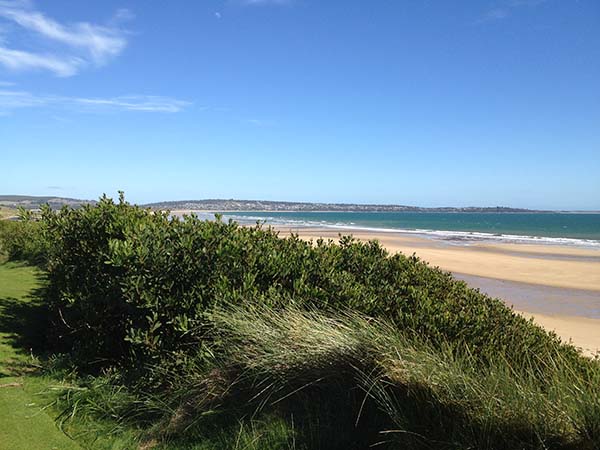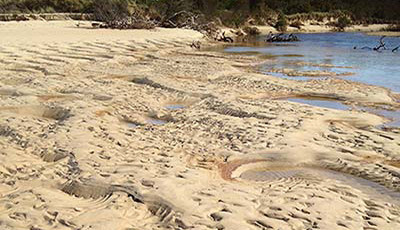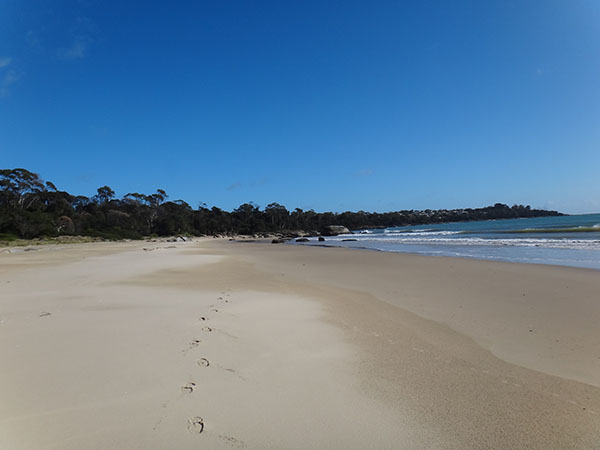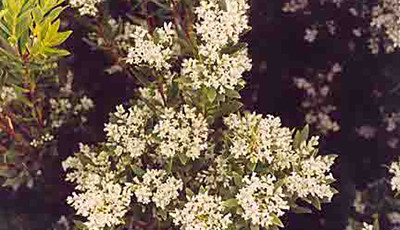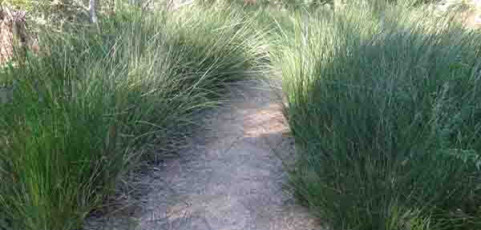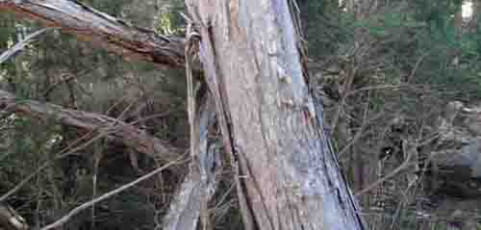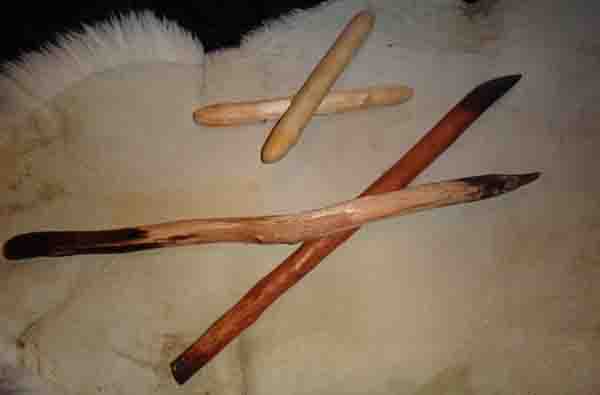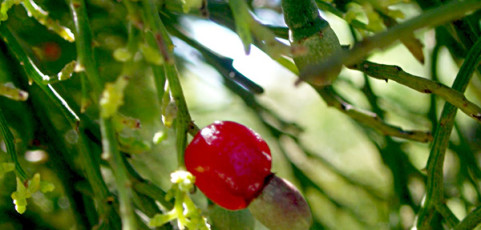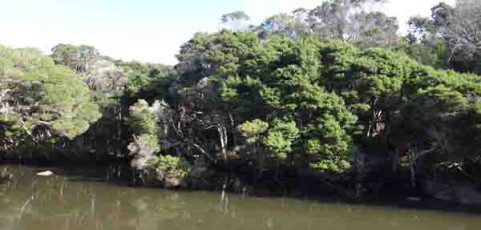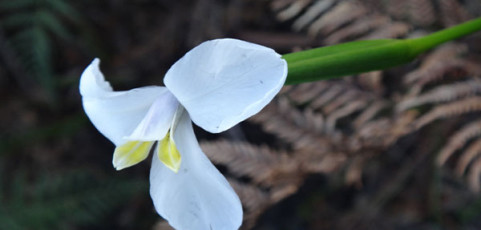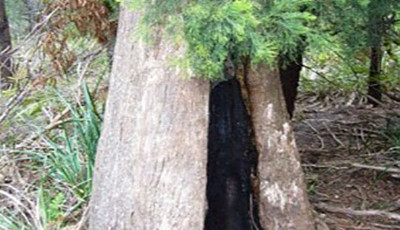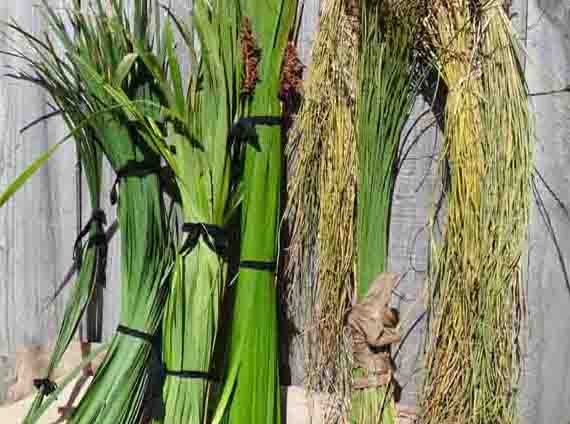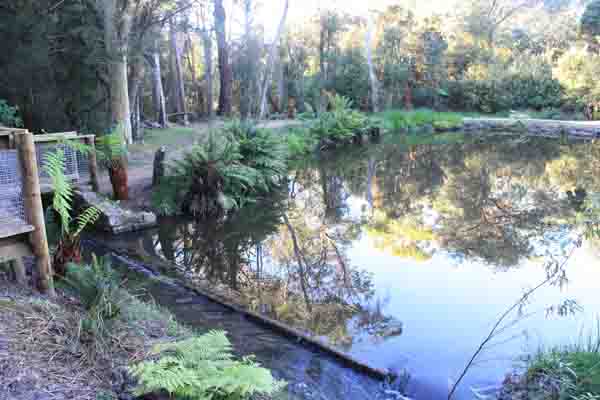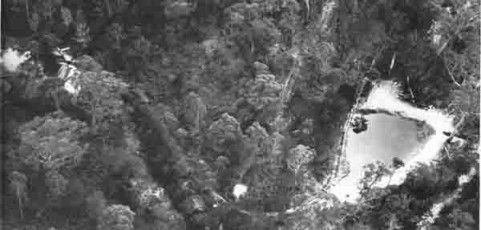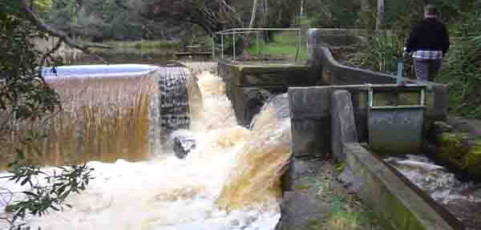Adams Beach at Little Forester River
Read MoreAdams Beach
Read MoreWild-Currant
Read MoreGrasses
Read MorePaperbark
Canoes were constructed from the paperbark tree which was in plentiful supply in the area. They were probably up to 5 metres long and made from thin strips of the bark tightly bound and lashed together with string for strength. Canoes were used to travel both long and short distances to the offshore islands.
Firebrand-and-Music-Sticks
Wood from dogwood and manuka was gathered to make implements and weapons. The ends were fire hardened and then made into short chisel type digging sticks, firebrands, spears, music sticks and waddis. The firebrand was carried for protection against the bad spirits as the people travelled, and for immediate use in cooking, firing the land and as well as for warmth.
Native Cherry
A variety of bush foods; fruits, roots, tubers were significant sources of nutrition for the leenerrerter people and were collected by the women.
Brid River
Living near or in the river systems of the Coastal Plains were a variety of animals including snakes, echidna, eels, native cat (quoll), platypus, possums, fish, burrowing and freshwater crayfish. Most of these animals comprised an important part of the leenerrerter diet.
White Flag Iris
Read MoreBlack peppermint
Grandfather and grandmother peppermint gum were culturally significant to the leenerrerter clanspeople both as a ceremonial tree and burial tree, and remain so for their descendants . The leenerrerter people practiced complex forms of reverence towards the remains of the dead. One practice was to place the deceased in an upright position in the burnt-out hollows of the living peppermint gum using lengths of brushwood or spears. Strips of...
Plant fibres for basket making
Read MoreSettling Pond
The settling pond was excavated in 1962 and used in the operation of the fish farm downstream. Aerial view settling pond, 1962 Before the pond was built the water race would frequently block with gravel and sand. Fish farm workers had to clean the race daily. With the settling pond as a part of the system, the water was then diverted into the pond from the race, and the gravel or sand would drop down and ‘settle.’ A screen was...
Aerial view settling pond 1962
In 1962 the settling pond was dug just a few hundred metres downstream from the weir. The water was diverted before it travelled down the race to the fish farm. The gravel and sand would drop to the bottom and the water was reasonably clear. A screen was installed to catch rubbish to stop it going down the race.
Weir and Water Supply System
Originally the water was pumped some 3000 ft or around 900 metres to the reservoir at the top of the town with no running costs. The reservoir is about 270 feet or about 80 metres above the river. The scheme covered an area from just south of the river along to the old pier. It also included taps along the foreshore, the recreation ground, (village green) and the public hall.

